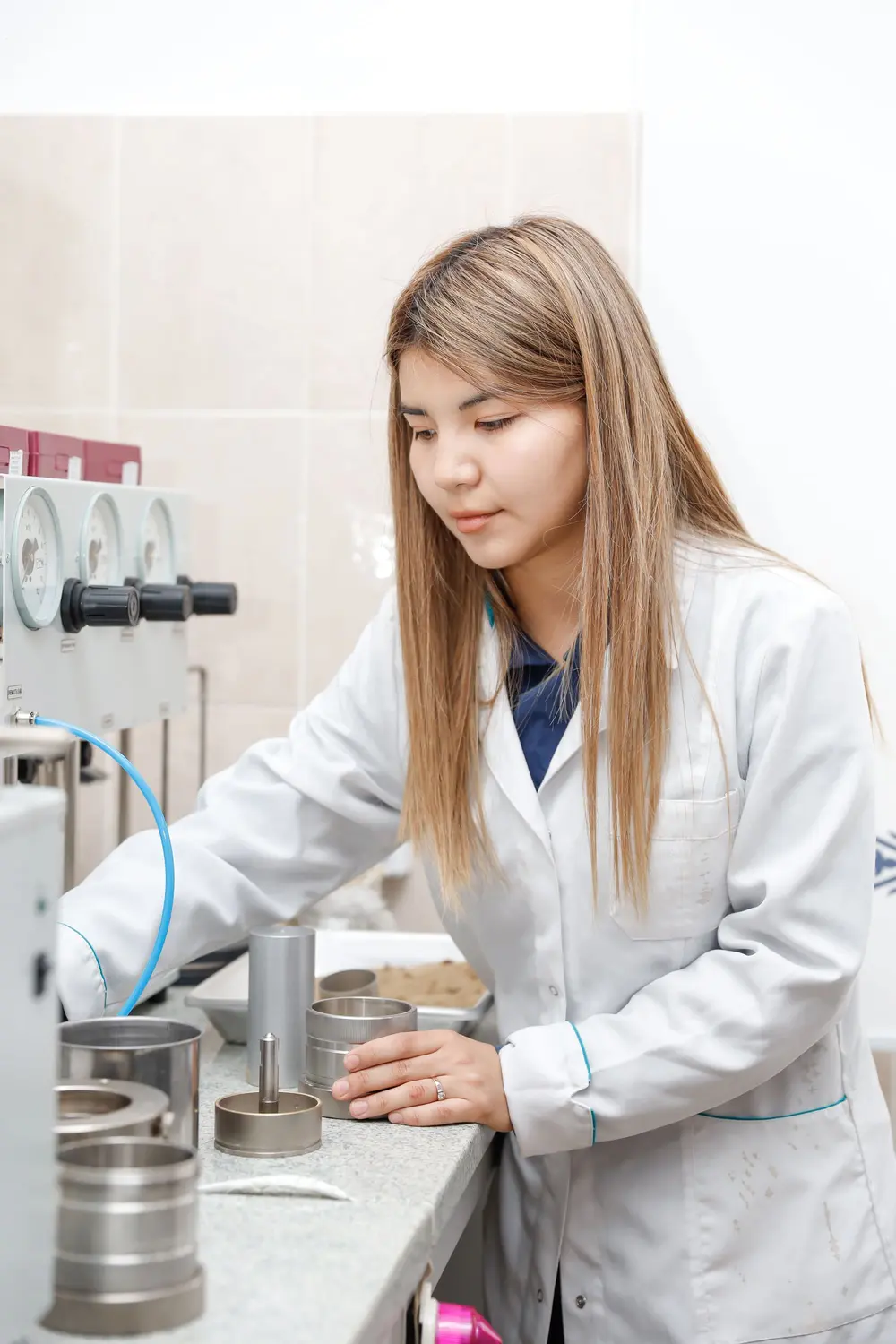Opening of new laboratories is a step towards strengthening scientific and engineering potential

Shakarim University is one of the leading educational institutions in the country, playing a significant role in scientific research and quality education. In recent years, the university has been focusing on developing its educational and scientific infrastructure. A clear example of this is the launch of two new laboratories – the Geotechnical Laboratory and the Construction Materials Laboratory – at the Department of Construction and Geodesy of the School of Artificial Intelligence and Construction. The opening of these laboratories represents a concrete step in training qualified specialists in construction and boosting the country’s scientific and engineering potential.
Significance and Features of the Geotechnical Laboratory
The Geotechnical Laboratory is equipped with advanced devices from the modern scientific-production enterprise “Geotek.” These instruments enable comprehensive physical and mechanical analysis of the earth’s crust. The laboratory’s main task is to determine the soil’s strength, deformation, and physical-mechanical properties during foundation design. Such studies are fundamental to ensuring the reliability and safety of construction.
The Head of the Department of Construction and Geodesy, PhD, Associate Professor Ilyas Jumadilov emphasized the laboratory’s importance:
“The Geotechnical Laboratory is essential for engineering surveys because it allows precise determination of soil properties at the construction site, facilitating correct decision-making in design and building construction. We study the soil’s physical and mechanical characteristics: its density, moisture content, porosity, permeability, as well as its granulometric composition. Our equipment enables the designer to provide architects with a complete and accurate description of the soil, based on which the architect decides on the type of foundation,” he said.
This laboratory forms an important scientific base in planning and implementing construction projects and contributes to raising the professional level of the industry.
Capabilities of the Construction Materials Laboratory
The second laboratory – the Construction Materials Laboratory – is designed for comprehensive testing of concrete, cement, and other construction materials.
The laboratory is equipped with a steam curing chamber, a laboratory electric furnace for thermal treatment of materials at temperatures up to 350 °C, equipment to determine the normal density and setting time of cement mixtures, a muffle furnace for high-temperature sample treatment, and other advanced devices. The use of automated systems such as the KP-109 sieve analyzer increases the efficiency and accuracy of the tests.
These devices enable highly precise testing of the quality and strength of construction materials.
The Role of Laboratories in the Educational Process
The Construction Materials Laboratory plays a decisive role in training students under the “Construction” educational program. Modern equipment allows students to acquire practical skills in testing construction materials, analyzing data, and assessing quality. This practical knowledge paves the way for preparing competitive and qualified specialists in the construction industry.
The university rector, Duman Orynbekov, officially launched the new laboratories by pressing a symbolic switch, marking this event as a real step from words to action. The rector highly praised the department’s scientific and educational work and noted that the new laboratories will further enhance the university’s scientific and engineering potential.
Both laboratories are widely used not only in the educational process but also in research activities. They provide students with the necessary tools to perform high-quality diploma projects and laboratory work and create opportunities to study pressing scientific issues in the construction sector.
The opening of new laboratories is an important step for Shakarim University in integrating education and science, offering students and researchers modern, high-quality conditions. This will not only raise the level of training skilled specialists in construction but also strengthen the scientific and technical potential of the country’s construction industry. The university’s modern laboratory base will develop the professional competencies of future builders and engineers and improve their research capabilities.
